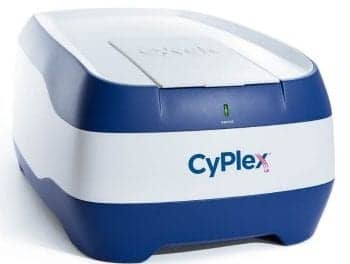Interview by Gary Tufel
This post is a companion article to the CLP May 2014 feature, “CLFS Reformed.”
When reviewing a complex piece of legislation—like the recently enacted Protecting Access to Medicare Act of 2014 (PAMA)—it helps to hear from experts in the areas most likely to be affected. The new legislation includes a number of fundamental changes to the way that the Centers for Medicare & Medicaid Services (CMS) will handle future coding and payment issues for lab testing. In conjunction with his article about the legislation, “CLFS Reformed,” in the May issue of Clinical Lab Products, contributing writer Gary Tufel also spoke with Timothy Sheets, national director for managed care and reimbursement at Progenity, a national CLIA-licensed laboratory provider of noninvasive prenatal testing and genetic carrier screening.
CLP: How would you characterize the laboratory reimbursement issues addressed in the recently enacted Protecting Access to Medicare Act?
Timothy Sheets: In the past, CMS has perhaps had too much jurisdiction over what tests get coded and ultimately paid for, without costing or coding methods validated by clinicians. In turn, most commercial payers, and in particular state Medicaid programs, have used CMS’s determinations as guidelines for setting benchmark coding and pricing recommendations in their respective regions. Meanwhile, valuable patient testing has not been thoroughly reviewed, thus creating significant difficulties for laboratories seeking to get reimbursed.
CLP: Progenity is a member of the American Clinical Laboratory Association (ACLA). What role did that organization play in developing the recent legislation?
Sheets: As a result of Medicare persistently reducing clinical lab reimbursements without timeliness or uniform adherence to defined standards for doing so, I have witnessed clinical laboratories heavily invested in servicing that sector become unable to sustain profitability. This has ultimately resulted in clinical labs going out of business. ACLA was a driving force in getting the attention of Congress with regard to this constant decreasing of reimbursement payments.
CLP: So as far as reimbursement and the CMS Clinical Laboratory Fee Schedule (CLFS) are concerned, is the new legislation going to be beneficial or detrimental to clinical labs?
Sheets: The new legislation may create a more cogent process for adjusting reimbursement through a market-based pricing model—as opposed to Medicare’s previously subjective cuts to clinical laboratory fees. The overall idea is for the stakeholders to be able to weigh in on changes to the fee schedules, instead of allowing only CMS or the Medicare administrative contractors (MACs) to make recommendations. Hopefully, this will open the process up to better communication and data-sharing on best reimbursement practices for clinical laboratories
CLP: Will the provisions of the legislation help or hinder investment in and development of new diagnostic technologies?
Sheets: This legislation should help to steady the laboratory payment system and encourage the development of personalized medicine lab testing. It will encourage investment into segmented, personalized testing opportunities for laboratory technologies such as molecular diagnostics. However, it is worth noting that political opponents of the legislation have suggested that there are not enough offsets to balance the increased spending that will ultimately be required across the sector as this is rolled out over a period of years.
CLP: PAMA also delays the implementation of ICD-10 codes, most recently due to take effect on October 1, 2014. How will this delay affect clinical labs?
Sheets: The goal of introducing the new series of diagnostic ICD-10 codes is to define and expose significant advances and developments in medicine—most notably in the area of personalized medicine—as technology and private investment advance the borders of new and more precise testing methods for patients. However, as with any introduction of complex standard codes like this, it takes longer to establish throughout the industry sector.
The big question for clinical laboratories that fall into this category is whether reimbursement practices will be improved through the use of a system of coding that more precisely identifies testing. Traditionally, government and commercial insurance payers have been slow to adopt wide-reaching coding and process changes, so most expect some difficulties or delays in reimbursement during implementation. How long is unclear at this time. The current delay again shows the difficulties in modifying wide-reaching coding changes to the entire clinical management system.
CLP: Will the legislation’s advisory panel on advanced laboratory diagnostics be an effective tool for formulating future legislation or regulations?
Sheets: The jury is still out. With the exception of legislative changes, this is the first opportunity for all affected parties to comment or weigh-in on test pricing and the clinical utility of such tests, rather than just a few people at CMS and the MACs. It will allow for segment and clinical experts in specific fields of study to communicate the effectiveness of new testing, and to weigh the benefits to patients in relation to specified price points. Pharmacogenomics is one example of an area where servicing clinicians want studies to support payment for tests, and where that support has been lacking with the “old” process.
Gary Tufel is a contributing writer for CLP. For additional information, contact chief editor Steve Halasey via [email protected].






